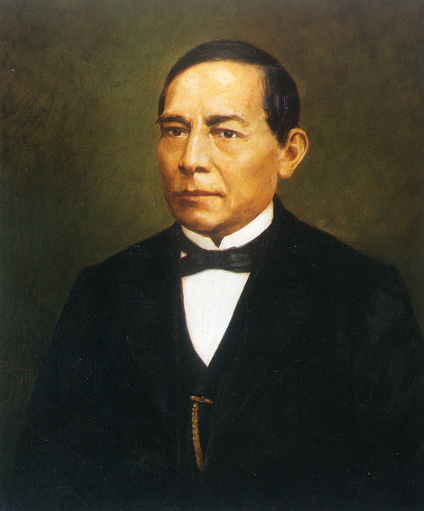PCGS MS65 1972 MEXICO BENITO JUAREZ SILVER 25 PESOS - TONED!!!
Benito Pablo Juárez García 21 March 1806 – 18 July 1872 was a Mexican liberal politician and lawyer who served as the 26th president of Mexico from 1858 until his death in office in 1872. As a Zapotec, he was the first indigenous president of Mexico and the first indigenous head of state in the postcolonial Americas. He is remembered as the preeminent Mexican president of the 19th century.
 |
Born in Oaxaca to a poor rural family and orphaned as a child, Juárez was looked after by his uncle and eventually moved to Oaxaca City at the age of 12, working as a domestic servant. Aided by a lay Franciscan, he enrolled in a seminary and studied law at the Institute of Sciences and Arts, where he became active in liberal politics. After his appointment as a judge, he married Margarita Maza, a woman of European ancestry from a socially distinguished family in Oaxaca City, and rose to national prominence after the ouster of Antonio López de Santa Anna in the Plan of Ayutla. He participated in La Reforma, a series of liberal measures under the presidencies of Juan Álvarez and Ignacio Comonfort which culminated in the Constitution of 1857. With Comonfort's resignation during the Reform War, Juárez, as President of the Supreme Court, became constitutional President of Mexico. He led Mexican liberals against conservatives during the conflict and prevailed against the Second French Intervention.
Juárez tied liberalism to Mexican nationalism and tenaciously held the presidency until his death in 1872. He asserted his leadership as the legitimate head of the Mexican state in opposition to Maximilian I, whom the French Empire installed with the support of Mexican conservatives. After being elected president in 1861, he extended his term during the French Intervention and was re-elected in 1867 and 1871 to lead the Restored Republic, but with growing opposition from fellow liberals. During his presidency, he took a number of controversial measures, including his negotiation of the McLane–Ocampo Treaty, which would have granted the United States extraterritorial rights across the Isthmus of Tehuantepec; a decree extending his presidential term for the duration of French Intervention; his proposal to revise the liberal Constitution of 1857 to strengthen the power of the federal government; and his decision to run for reelection in 1871. His opponent, liberal general, and fellow Oaxacan Porfirio Díaz opposed his re-election and rebelled against Juárez in the Plan de la Noria.
Juárez came to be seen as "a preeminent symbol of Mexican nationalism and resistance to foreign intervention." He looked to the United States as a model for Mexican development, as opposed to previous administrations, whose political vision was more inclined towards Europe. His policies advocated civil liberties, equality before the law, the sovereignty of civilian power over the Catholic Church and the military, the strengthening of the Mexican federal government, and the depersonalization of political life. For Juárez's success in ousting European invasion, Mexicans considered Juárez's tenure as a time of a "second struggle for independence, a second defeat for the European powers, and a second reversal of the Conquest."
After his death, the city of Oaxaca added "de Juárez" to its name in his honor, and numerous other places and institutions have been named after him. He is the only individual whose birthday (21 March) is celebrated as a national public and patriotic holiday in Mexico.










